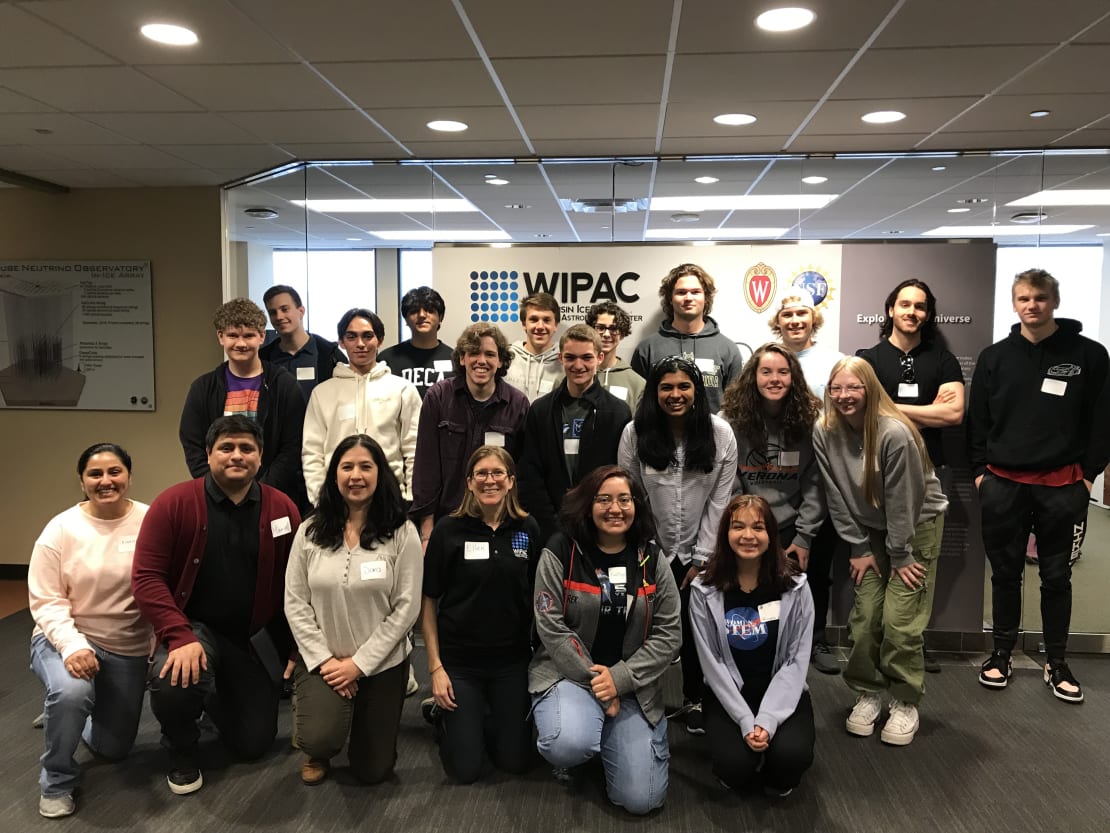The tenth edition of the IceCube Masterclass hosted over 250 students across 20 research institutions in Belgium, Canada, Denmark, France, Germany, Japan, Sweden, and the United States. The masterclasses were held between the months of January and May, with many of them returning to an in-person program. This year, Queens University in Canada joined the masterclass program for the first time.
The program, created in 2014, exposes high school students—mostly sophomore level and up—to research careers in astrophysics and IceCube science. Each host institution provides a day full of hands-on activities and lectures, including analysis of real IceCube data, lunch with IceCube researchers, and a webcast with researchers at the South Pole.
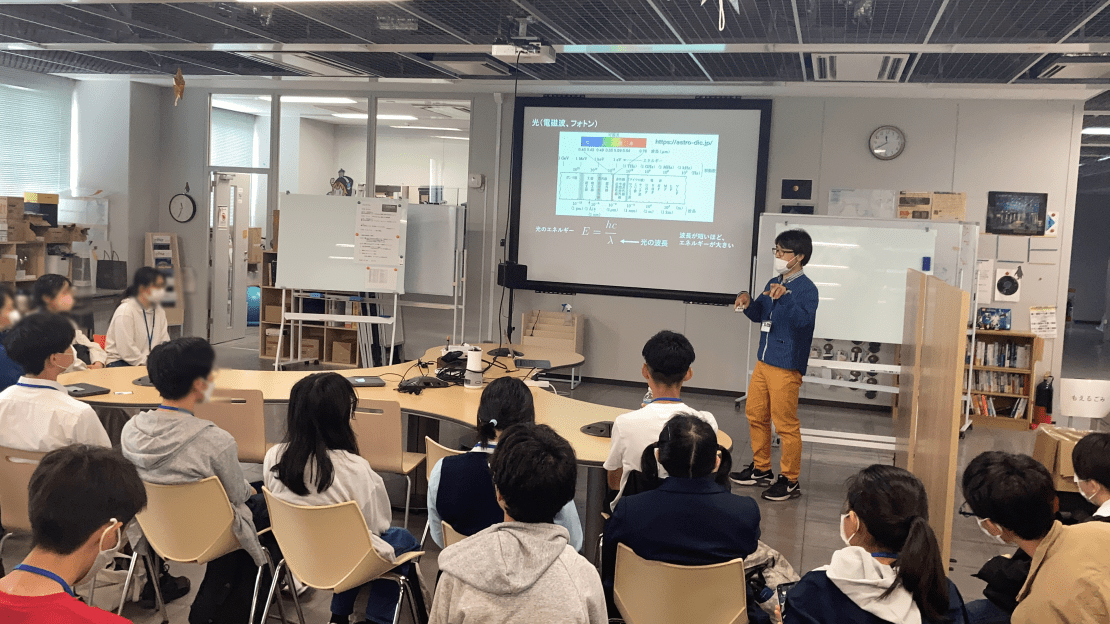
In Japan, Chiba University hosted their second masterclass, this time in their lab. Students were given a tour of the lab and were shown both the digital optical modules (DOMs) used in IceCube and the new “dual optical sensors in an ellipsoid glass” (D-Eggs) planned for IceCube-Gen2.
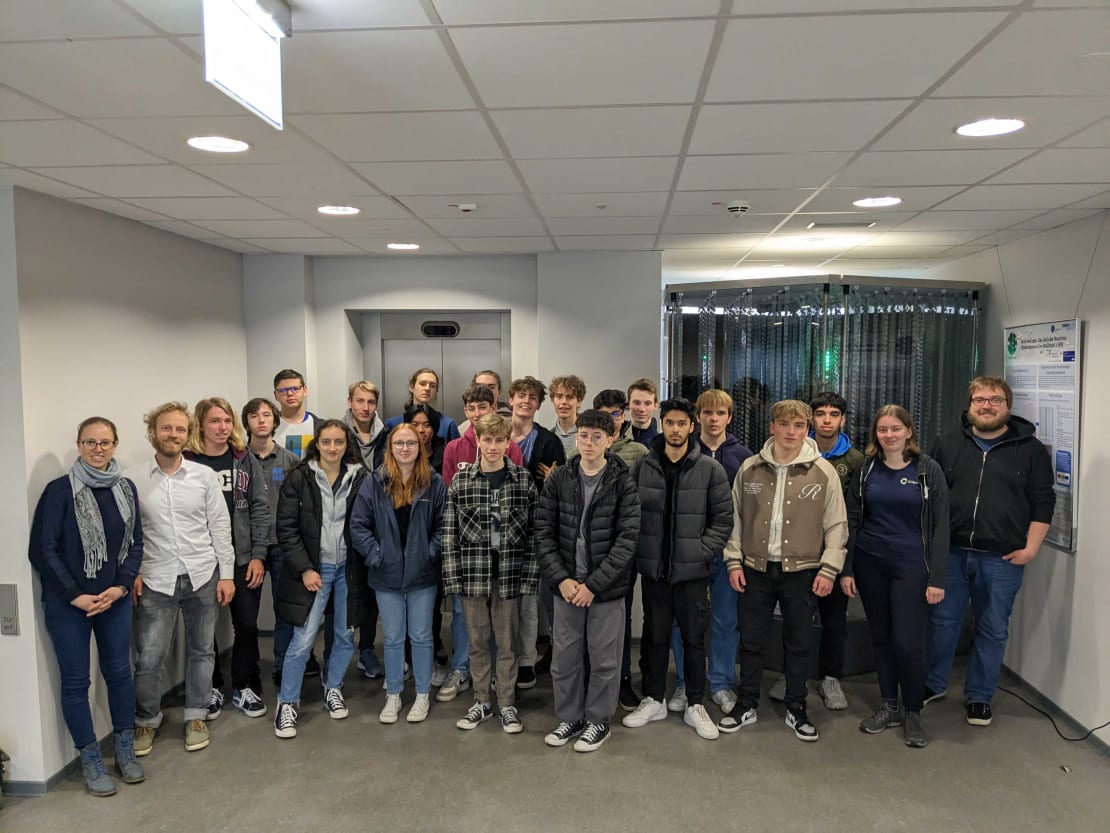
Elsewhere, participants at UCLouvain in Belgium learned the basics of neutrinos and gravitational wave astronomy while participants at both the RWTH Aachen University and Johannes Gutenberg-Universität Mainz in Germany built cloud chambers to visualize particle detection.
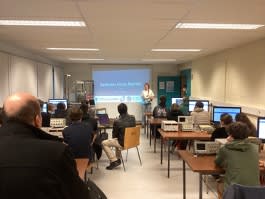
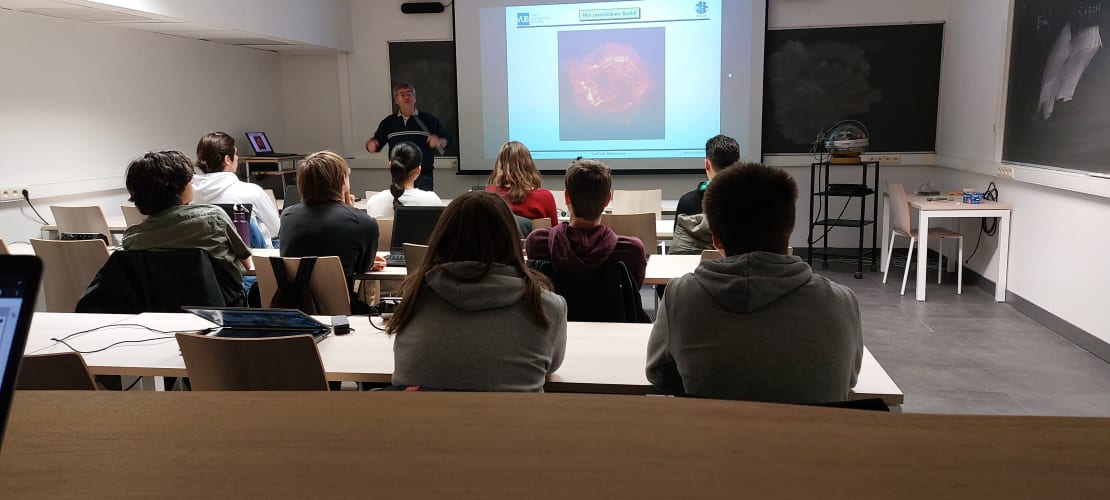

This year was also the Georgia Institute of Technology’s turn to host the masterclass, since last year Mercer University hosted as part of a collaboration between the two schools. The Georgia Institute of Technology had 30 high school students participating from the metro Atlanta area, who worked on online cosmic ray activities.
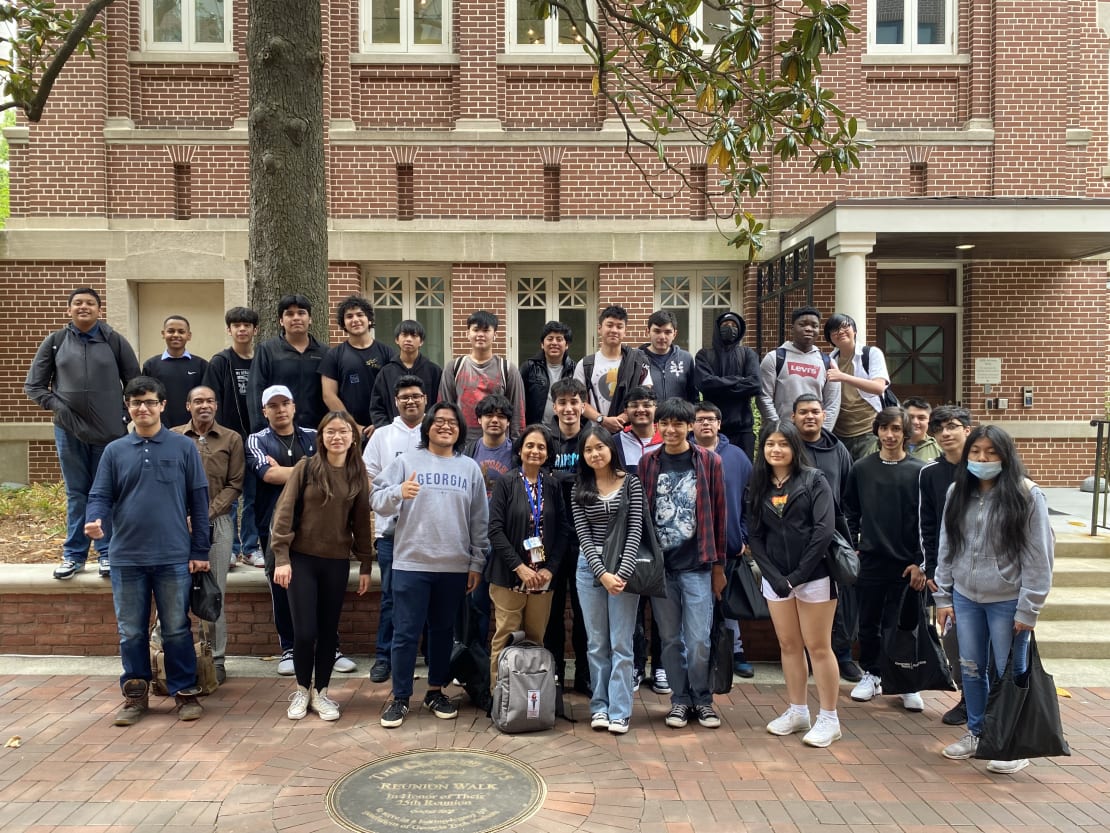
At the South Dakota School of Mines and Technology in Rapid City, South Dakota, 45 students experienced a full day of neutrino and cosmic ray exercises and a scientific lecture.
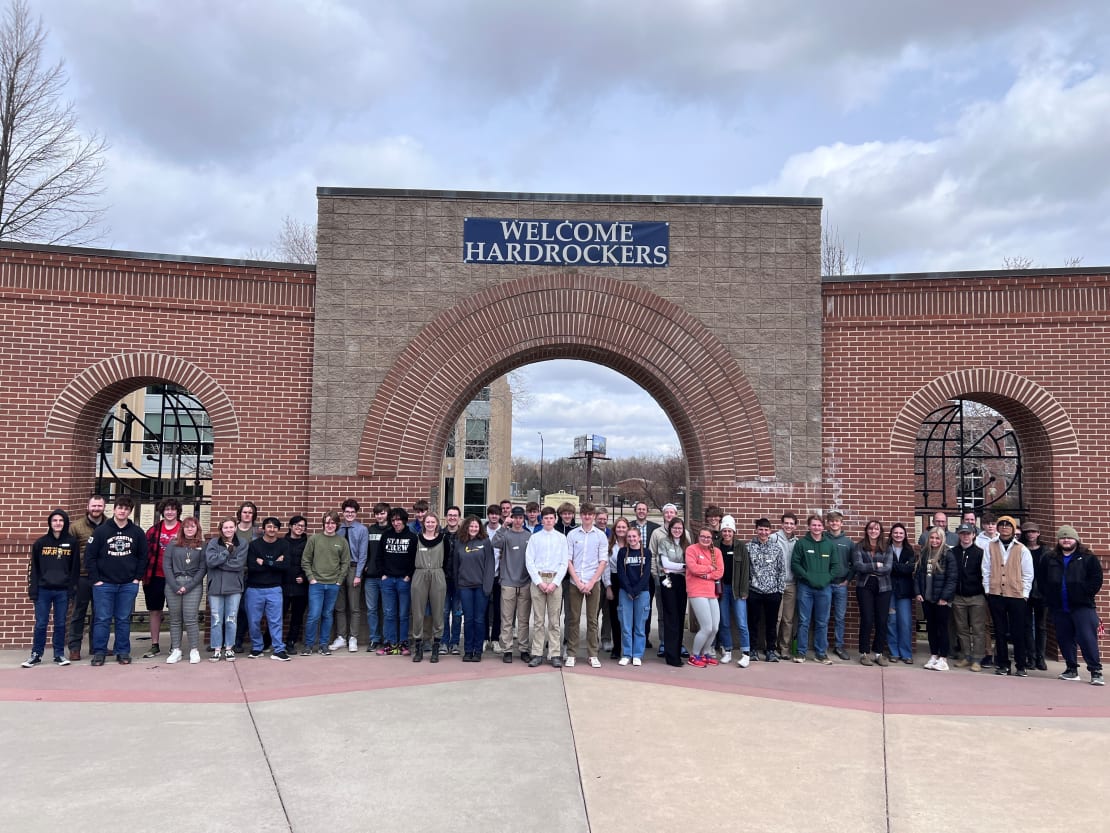
The Wisconsin IceCube Particle Astrophysics Center (WIPAC) in Madison, Wisconsin, also hosted an in-person program this year. The high school students talked to IceCube graduate students, heard from researchers at the South Pole, and worked through example analyses to end the day.
“It was inspiring to celebrate 10 years of the IceCube Masterclass with over 20 participating institutions,” says Ellen Bechtol, outreach specialist at WIPAC who helps organize IceCube Masterclass. “The IceCube education and outreach team looks forward to inspiring students through this program for another ten years and beyond.”
